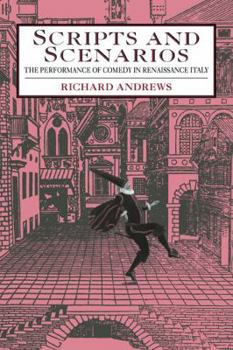Scripts and Scenarios: The Performance of Comedy in Renaissance Italy
Select Format
Select Condition 
Book Overview
The Italian Renaissance produced a new type of stage comedy, experimental and even revolutionary in its time, by copying and updating the dramatic formats of Plautus and Terence from ancient Rome. These scripted comedies, first written and performed for private audiences, ranged in tone from sober moralism to scurrilous farce, and influenced European dramatists from Shakespeare to Moli?re and Lope de Vega. This book gives an account of how the new...
Format:Paperback
Language:English
ISBN:0521034159
ISBN13:9780521034159
Release Date:March 2007
Publisher:Cambridge University Press
Length:316 Pages
Weight:1.02 lbs.
Dimensions:0.7" x 6.0" x 9.0"
Customer Reviews
0 rating





